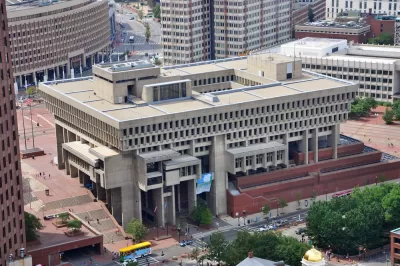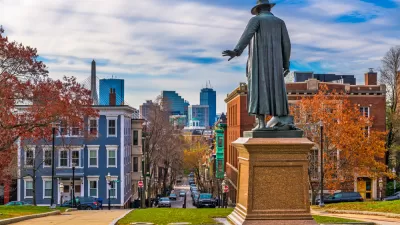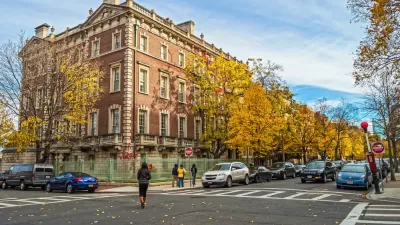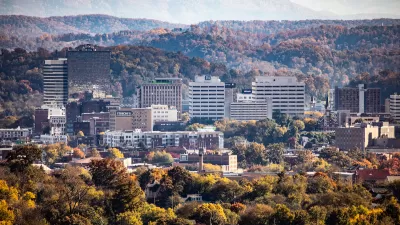Mayor Wu recently overhauled the makeup of Boston’s Zoning Board of Appeals, but bigger changes will be necessary to depoliticize the city’s development approvals process.

The Boston Globe Editorial Board describes the city’s Zoning Board of Appeals (ZBA) as having “something of a stranglehold on small and mid-sized building projects throughout the city.”
So the Editorial Board welcomes a recent shakeup of the ZBA [paywall] by Mayor Michelle Wu, who is a longtime critic of the ZBA [paywall] and the politics of the city’s development approvals process. Wu’s past reform proposals included calling for ZBA appointees to have climate change and urban planning expertise, rather than being required to come from specific interest groups such as the Building Trades Council, the Boston Society of Architects, and the Greater Boston Real Estate Board.
But Wu is still working within those parameters with the recent appointments, so the editorial is only cautiously optimistic that the shakeup might work as the mayor intends. “But it doesn’t solve the larger issues that she was so intent on solving — providing diversity of professional backgrounds and skills without leaving board members open to charges of insider dealing or even intentional insider obstructionism,” according to the editorial.
Barring the state-level approval that would be required to substantively change the ZBA, the Boston Zoning Commission, which has purview over the city’s zoning code, could also improve the city’s approval process.
In the meantime, however, Boston’s ZBA is expected to continue to review hundreds of appeals for small projects “that in every other city and town would be routine building permit matters — a roof deck or garage or an in-law apartment,” reads the editorial.
FULL STORY: Wu cleans house at zoning board [paywall]

Alabama: Trump Terminates Settlements for Black Communities Harmed By Raw Sewage
Trump deemed the landmark civil rights agreement “illegal DEI and environmental justice policy.”

Planetizen Federal Action Tracker
A weekly monitor of how Trump’s orders and actions are impacting planners and planning in America.

The 120 Year Old Tiny Home Villages That Sheltered San Francisco’s Earthquake Refugees
More than a century ago, San Francisco mobilized to house thousands of residents displaced by the 1906 earthquake. Could their strategy offer a model for the present?

In Both Crashes and Crime, Public Transportation is Far Safer than Driving
Contrary to popular assumptions, public transportation has far lower crash and crime rates than automobile travel. For safer communities, improve and encourage transit travel.

Report: Zoning Reforms Should Complement Nashville’s Ambitious Transit Plan
Without reform, restrictive zoning codes will limit the impact of the city’s planned transit expansion and could exclude some of the residents who depend on transit the most.

Judge Orders Release of Frozen IRA, IIJA Funding
The decision is a victory for environmental groups who charged that freezing funds for critical infrastructure and disaster response programs caused “real and irreparable harm” to communities.
Urban Design for Planners 1: Software Tools
This six-course series explores essential urban design concepts using open source software and equips planners with the tools they need to participate fully in the urban design process.
Planning for Universal Design
Learn the tools for implementing Universal Design in planning regulations.
Clanton & Associates, Inc.
Jessamine County Fiscal Court
Institute for Housing and Urban Development Studies (IHS)
City of Grandview
Harvard GSD Executive Education
Toledo-Lucas County Plan Commissions
Salt Lake City
NYU Wagner Graduate School of Public Service





























